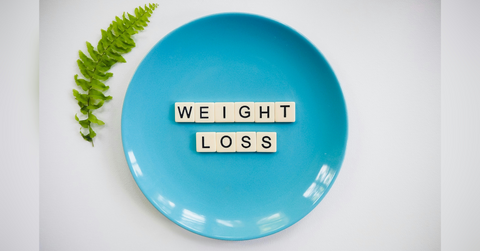Weight Loss Made Simple: Science-Backed Strategies That Work

Sept. 30 2025, Published 1:43 a.m. ET
Losing weight is often seen as a complicated process, filled with endless diet rules, strict exercise plans, and conflicting advice. But at its core, weight loss is a science-backed journey of balancing energy intake and energy expenditure while making sustainable lifestyle changes. Instead of chasing fads or extreme solutions, adopting proven methods supported by research can make the process simple, achievable, and long-lasting.
Understanding the Basics
At the heart of weight loss is a simple principle: calories in versus calories out. When you consume fewer calories than your body burns, you create a calorie deficit, leading to fat loss over time. However, not all calories are equal, and not all bodies respond the same way. Genetics, metabolism, lifestyle habits, and even sleep quality play a role in how effectively someone can lose weight.
The good news is that science has identified strategies that work consistently across individuals, regardless of starting point. These focus not just on cutting calories, but also on improving food choices, creating routines, and developing healthy behaviors that last.
Prioritize Nutrient-Dense Foods
One of the simplest and most effective strategies is to eat more whole, nutrient-dense foods. Vegetables, fruits, lean proteins, whole grains, and healthy fats provide essential vitamins, minerals, and fiber while keeping calorie intake under control. Fiber-rich foods in particular slow digestion, help control blood sugar levels, and increase satiety, which reduces the likelihood of overeating.
For example, swapping refined carbohydrates like white bread for whole grains such as quinoa or oats can make a big difference. Similarly, choosing grilled chicken or beans instead of fried or processed meats reduces both calories and unhealthy fats. Small, consistent swaps like these accumulate into significant results over time.
Protein: The Weight Loss Powerhouse
Protein is often called the cornerstone of successful weight loss—and for good reason. Research shows that protein boosts metabolism, reduces appetite, and helps preserve muscle mass during a calorie deficit. By including a source of protein in each meal, such as eggs, fish, legumes, or dairy, you’re more likely to stay full and satisfied, reducing the temptation to snack unnecessarily.
Additionally, maintaining lean muscle mass is crucial because muscle burns more calories at rest compared to fat. This means higher protein intake can indirectly support long-term weight management by keeping metabolism from slowing down dramatically during weight loss.
The Role of Exercise
Exercise is not just about burning calories. It also supports cardiovascular health, improves mood, and helps maintain muscle mass. While both cardio and strength training are valuable, research highlights the importance of resistance training in sustainable fat loss. Lifting weights or using bodyweight exercises ensures that the majority of weight lost comes from fat rather than muscle.
Even walking daily or engaging in light physical activity can significantly impact calorie expenditure and overall well-being. The goal is to stay consistent rather than extreme. Finding enjoyable activities makes it easier to commit long-term.
Sleep and Stress Management
Many people overlook sleep and stress when trying to lose weight, but both are critical factors. Poor sleep disrupts hormones that regulate hunger, such as ghrelin and leptin, leading to increased appetite and cravings. Chronic stress elevates cortisol levels, which can encourage fat storage, especially around the abdomen.
Establishing a bedtime routine, limiting screen time before sleep, and practicing relaxation techniques like meditation or yoga can significantly enhance weight loss results. When your body is well-rested and calm, it becomes easier to stick to healthy eating and exercise habits.
Consistency Over Perfection
Another science-backed strategy is to focus on consistency, not perfection. Strict diets often fail because they are too rigid and unsustainable. Instead, aim for progress rather than flawless execution. Allowing yourself flexibility—such as enjoying occasional treats without guilt—prevents the all-or-nothing mindset that leads to binge eating and discouragement.
Tracking progress also plays a huge role in staying motivated. Tools like a weight loss tracker can help you monitor habits, celebrate milestones, and make adjustments when needed. Even small victories, such as drinking more water or taking a walk after dinner, deserve recognition because they build momentum.
Building Habits That Last

Ultimately, the most effective weight loss strategies are those you can maintain for life. Crash diets or extreme workout routines may provide short-term results, but they rarely lead to lasting change. By gradually adjusting your eating habits, incorporating regular movement, and prioritizing rest, you build a foundation for long-term success.
Behavioral psychology also supports this idea. Habits are formed by repeating actions consistently until they become automatic. For instance, replacing soda with water daily eventually becomes second nature, requiring little effort. Stacking habits—like doing stretches after brushing your teeth—further increases the likelihood of lasting change.
The Bottom Line
Weight loss doesn’t need to be complicated or overwhelming. By focusing on nutrient-dense foods, prioritizing protein, incorporating both cardio and strength training, improving sleep, and managing stress, you set yourself up for sustainable results. Most importantly, approaching the journey with patience and consistency ensures that the progress you make is lasting.
Rather than chasing quick fixes, trust in the science and give your body the time it needs to adapt. Remember, small daily actions lead to big changes over time. With the right mindset and strategies, weight loss truly can be made simple.


